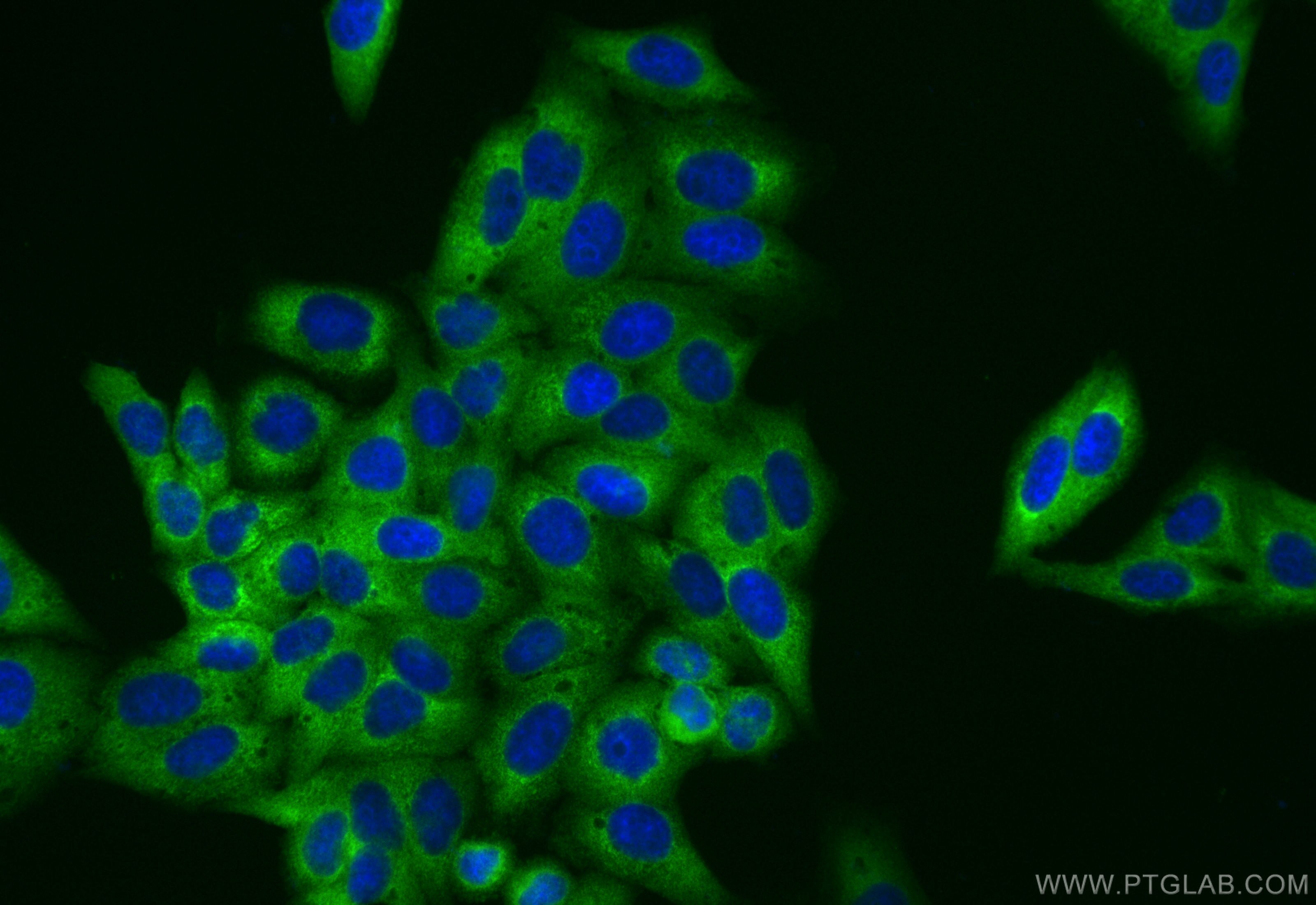Anticorps Recombinant de lapin anti-MARS
MARS Recombinant Antibody for IF/ICC
Hôte / Isotype
Lapin / IgG
Réactivité testée
Humain, rat, souris
Applications
IF/ICC
Conjugaison
CoraLite® Plus 488 Fluorescent Dye
CloneNo.
240648G3
N° de cat : CL488-83690-5
Synonymes
Galerie de données de validation
Applications testées
| Résultats positifs en IF/ICC | cellules HepG2, |
Dilution recommandée
| Application | Dilution |
|---|---|
| Immunofluorescence (IF)/ICC | IF/ICC : 1:50-1:500 |
| It is recommended that this reagent should be titrated in each testing system to obtain optimal results. | |
| Sample-dependent, check data in validation data gallery | |
Informations sur le produit
CL488-83690-5 cible MARS dans les applications de IF/ICC et montre une réactivité avec des échantillons Humain, rat, souris
| Réactivité | Humain, rat, souris |
| Hôte / Isotype | Lapin / IgG |
| Clonalité | Recombinant |
| Type | Anticorps |
| Immunogène | MARS Protéine recombinante Ag6619 |
| Nom complet | methionyl-tRNA synthetase |
| Masse moléculaire calculée | 101 kDa |
| Poids moléculaire observé | 101 kDa |
| Numéro d’acquisition GenBank | BC002384 |
| Symbole du gène | MARS |
| Identification du gène (NCBI) | 4141 |
| Conjugaison | CoraLite® Plus 488 Fluorescent Dye |
| Excitation/Emission maxima wavelengths | 493 nm / 522 nm |
| Forme | Liquide |
| Méthode de purification | Purification par protéine A |
| Tampon de stockage | PBS with 50% glycerol, 0.05% Proclin300, 0.5% BSA |
| Conditions de stockage | Stocker à -20 °C. Éviter toute exposition à la lumière. Stable pendant un an après l'expédition. L'aliquotage n'est pas nécessaire pour le stockage à -20oC Les 20ul contiennent 0,1% de BSA. |
Informations générales
The methionyl-tRNA synthetase (MARS) gene encodes cytoplasmic methionyl-tRNA synthetase (MetRS) responsible for catalyzing the ligation of methionine to tRNA. MetRS belongs to a family of aminoacyl-tRNA synthetases that play critical roles in protein biosynthesis by charging tRNAs with their cognate amino acids. MetRS overexpression was shown to be evident in human colon cancer patients. MetRS may thus be involved in oncogenic transformation. MetRS has been proven as a potential prognostic marker candidate for the clinical prognostic prediction of non-small-cell lung cancer (NSCLC) in patients. MetRS can also be used to detect intracellular oxidative stress and control protein synthesis under oxidative stress (PMID: 30271085, PMID: 34679529, PMID: 32404475). The calculated molecular weight of MetRS is 101 kDa.
Protocole
| Product Specific Protocols | |
|---|---|
| IF protocol for CL Plus 488 MARS antibody CL488-83690-5 | Download protocol |
| Standard Protocols | |
|---|---|
| Click here to view our Standard Protocols |


